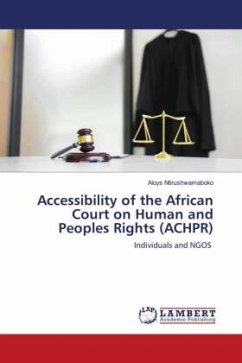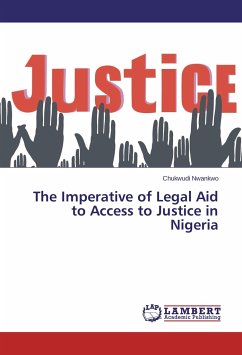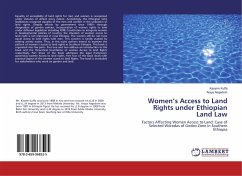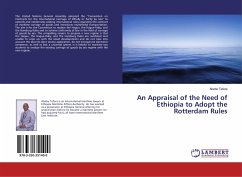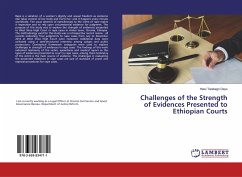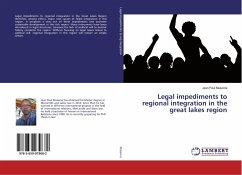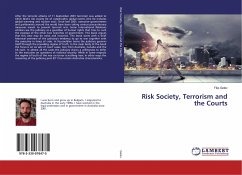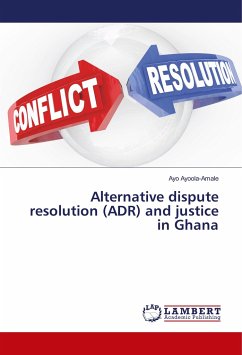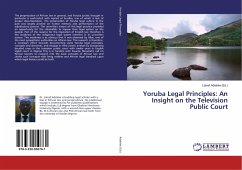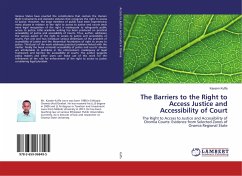
The Barriers to the Right to Access Justice and Accessibility of Court
The Right to Access to Justice and Accessibility of Oromia Courts: Evidence from Selected Zones of Oromia Regional State
Versandkostenfrei!
Versandfertig in 6-10 Tagen
33,99 €
inkl. MwSt.

PAYBACK Punkte
17 °P sammeln!
Various States have enacted the constitutions that contain the Human Right Instruments and domestic statutes that recognize the right to access to justice. However, the large members of public have been experiencing many abuses in relation to the right to access to justice and courts since mere legal recognition of the right is inadequate to safeguards public access to justice. Little academic writing has been produced on practical accessibility of justice and accessibility of Courts. Thus, author, addresses the various aspect of the right to access to justice and accessibility of courts. Part...
Various States have enacted the constitutions that contain the Human Right Instruments and domestic statutes that recognize the right to access to justice. However, the large members of public have been experiencing many abuses in relation to the right to access to justice and courts since mere legal recognition of the right is inadequate to safeguards public access to justice. Little academic writing has been produced on practical accessibility of justice and accessibility of Courts. Thus, author, addresses the various aspect of the right to access to justice and accessibility of courts. Part one and two introduce various dimensions of the problem of accessibility of justice and the theoretical foundation of right to access to justice. Third part of the work addresses practical problems linked with the matter. Finally the book contends accessibility of justice and courts' abuses are attributable to problems in the enforcement, inadequacy of legal framework and barriers for accessibility of courts. The author suggests policy makers and other users can make use of this work for the refinement of the rule for enforcement of the right to access to justice considering legal pluralism.



